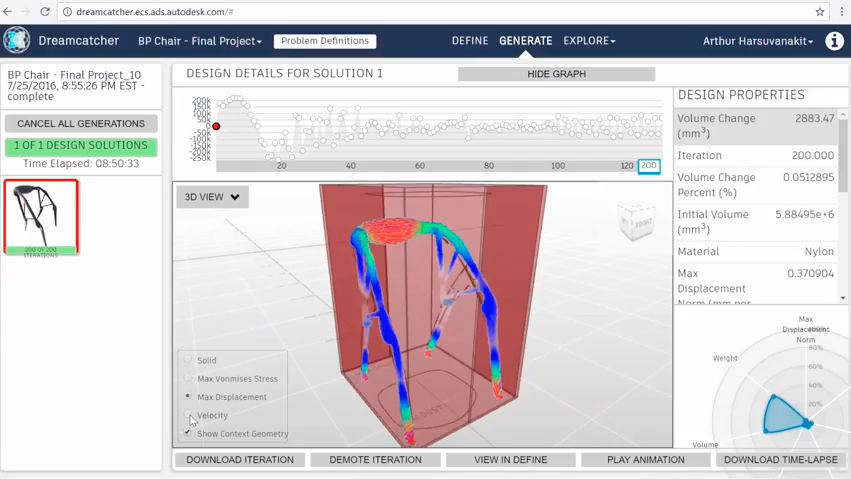Call for government to back SMEs and 4IR

Global 3D design software company, Autodesk, is calling on the Government to provide more support for Britain’s SMEs if the UK is to become a global manufacturing powerhouse and a driver of the Fourth Industrial Revolution (4IR).
The manufacturing software developer has released a new manifesto ‘Enabling the Art of the Impossible: How Britain can lead the 4th Industrial Revolution’. The strategy has been backed by Lloyds Bank, Simon Kucher & Partners, MHA, The Manufacturer, as well as some key local education partnerships and universities, including Liverpool City Region LEP and Manchester Metropolitan University.
The document focuses on two core principles said to be needed if Britain is to reclaim its industrial greatness, which it is said were not adequately reflected in the recent Made Smarter Review (MSR), which informs the Industrial Strategy, recent Budget announcements, nor the governemnt’s Industrial Strategy White Paper (ISWP). These are: thinking beyond productivity, and treating design and manufacture as one entity.
The manifesto is being launched at a time when efforts are being focused on accelerating the rate and scale that manufacturers adopt 4IR. Research has found that although 62% of manufacturers plan to undertake some form of move to Industry 4.0, only 23% of them are actively doing something about it.

Asif Moghal, senior manufacturing industry manager at Autodesk, comments: “If British manufacturers are to rival those in countries such as China and India, there needs to be a fundamental shift in the industry. We feel the MSR and ISWP are great steps towards achieving this; however, a number of areas within it would benefit from further refinement.”
The manifesto lays out the following four recommendations to drive these changes and create a more sustainable strategy for the UK’s manufacturing industry:
1. Develop home grown leadership – While the Government announced it is to invest an additional £406 million to help address the shortage in STEM skills, what is needed is a ‘pull’ from the industry and greater collaboration between the two. Only then will we create a new breed of role models to drive manufacturing innovation. This involves creating National Design and Manufacturing Days for students; championing STEM skills; helping SMEs better understand the 4IR and developing a leadership curriculum for businesses owners.
2. Enable full spectrum innovation – Both the 2016 Autumn Statement and 2017 Budget pledged to increase funding for R&D in the UK, but this is currently limited mostly to early stage projects. By expanding the funding scope, more UK companies would be able to develop and commercialise a broader range of product and business model innovations. A range of tax or financial incentives, as well as raising awareness for them, should also be created by Government to support this.
3. Simplify the skills issue – The creation of even more skills institutions, as outlined by MSR, should be abandoned. There should rather be greater support from Government for the Institute for Apprenticeships, the scaling up of existing digital catalyst programmes and making the Apprenticeship Levy easier to navigate, to help upskill current employees and the future workforce.
4. Connect everyone – The Government’s March 2017 Connectivity paper and commitment in the 2017 Budget for full fibre broadband and 5G are welcomed. However, a report in August 2017 suggested the UK’s average broadband speed was just 16.5Mbps, placing it 31st in the world.[2] Creating a secure and reliable digital backbone for businesses must be a priority for Government, so that industry can access transformative technologies and platforms that enable collaboration and break down the barriers between design and manufacturing. The manifesto supports accelerated investment into the UK’s digital infrastructure, including faster broadband, better security and a digital connectivity rating.

Mr Moghal continues: “Our knowledge of British manufacturing, combined with previous experience of helping the UK Government transform the construction industry, have set a good base for us to develop these recommendations. We also consulted members of the Future of British Manufacturing initiative (FOBMI), which aims to help the industry take a hands-on approach to 4IR and was founded by Autodesk and The Manufacturer, to refine them. We believe these four areas would drive a transformation for UK design and manufacturing and we welcome a conversation with the Department for Business, Energy & Industrial Strategy, the Made Smarter Review board and wider industry on our proposal.”
Dave Atkinson, UK head of manufacturing at Lloyds Bank Commercial Banking added: “If we want to match the productivity levels of our international peers then we, the government and the industry must come together to make the best use of our home-grown talent, investment and technology to shift towards a smarter manufacturing era.”
Prof. Craig E. Banks, academic lead for Print City, Manchester Metropolitan University said: “A lack of small business engagement in UK manufacturing is impacting our economic growth potential and, at the heart of the problem, is a deficiency of skills and training. Through our work at Print City, a UK based digital training centre, we have found that while many manufacturers have CAD software and 3D printers, they do not necessarily have the right skillsets to combine them and reach their full capability. In the manufacturing digital workflow, you must first have the skills to design what is to be manufactured. This is a shared vision with Autodesk and its manifesto, which is why we’re fully backing it.”
For a copy of the manifesto contact Sarah Douglas, head of brand marketing, EMEA, Autodesk: Sarah.douglas@autodesk.com
Autodesk www.autodesk.com













